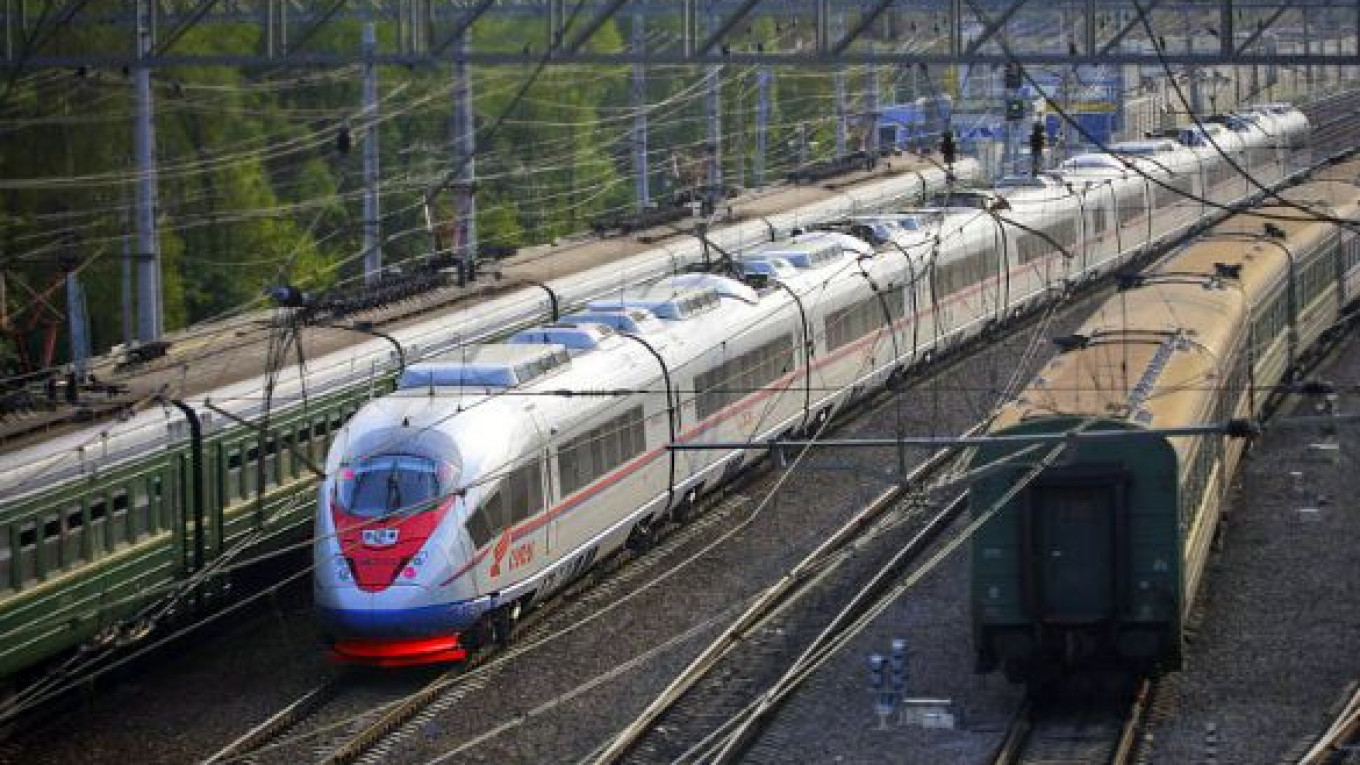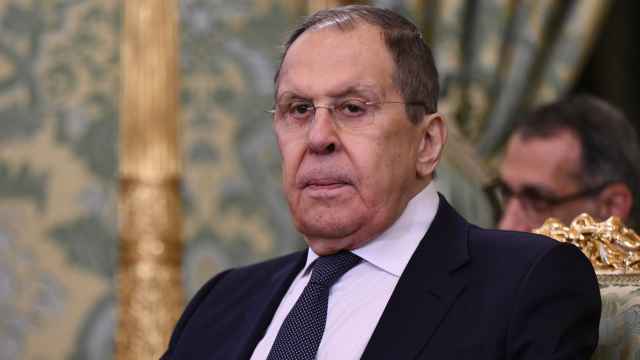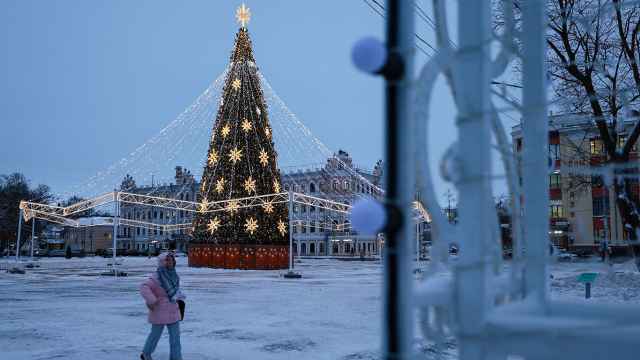Russia may abandon plans to build high-speed rail lines for the 2018 World Cup.
Citing a source "close to Deputy Prime Minister Igor Shuvalov," Vedomosti reported that current thinking is that high-speed lines are not essential to the smooth running of the championship and that building regular lines and modernizing existing ones would be sufficient.
Funding for the 5.6 trillion ruble ($177 million) projects, which were meant to slash journey times between Moscow, St. Petersburg and Yekaterinburg, will not be included in federal spending in 2013 to 2015, Vedomosti reported Thursday, citing several civil servants.
Since Russian Railways' did not include the high-speed network in its own investment program to 2020, the news could mean the project is in limbo. A source told the paper that the fate of the project is being discussed.
Russian Railways issued no immediate comment.
A plan to build high-speed rail lines between Moscow and St. Petersburg and Moscow and
Yekaterinburg to carry fans between match cities was unveiled shortly after Russia won its World Cup bid in 2010. Construction work was scheduled to start next year.
The budget for the project is slated at 5.6 trillion rubles, of which 1.9 trillion is yet to be accounted for.
The original funding model envisaged the project would be 70 percent financed by the state and 30 percent by a concessionaire.
Several foreign concerns had expressed interest in bidding for the project, including Siemens, Hyundai, Alstom and CRCC of China.
The Moscow to St. Petersburg line, which would allow high-speed Sapsan trains to provide an even faster service without disrupting regular services on the original line, was slated to cost 1.12 trillion rubles.
The second line, linking Moscow to Yekaterinburg via Nizhny Novgorod and Kazan, would cut journey times between the capital and the Urals from 26 to just eight hours.
Related articles:
A Message from The Moscow Times:
Dear readers,
We are facing unprecedented challenges. Russia's Prosecutor General's Office has designated The Moscow Times as an "undesirable" organization, criminalizing our work and putting our staff at risk of prosecution. This follows our earlier unjust labeling as a "foreign agent."
These actions are direct attempts to silence independent journalism in Russia. The authorities claim our work "discredits the decisions of the Russian leadership." We see things differently: we strive to provide accurate, unbiased reporting on Russia.
We, the journalists of The Moscow Times, refuse to be silenced. But to continue our work, we need your help.
Your support, no matter how small, makes a world of difference. If you can, please support us monthly starting from just $2. It's quick to set up, and every contribution makes a significant impact.
By supporting The Moscow Times, you're defending open, independent journalism in the face of repression. Thank you for standing with us.
Remind me later.






